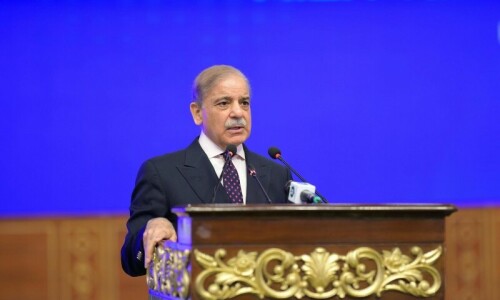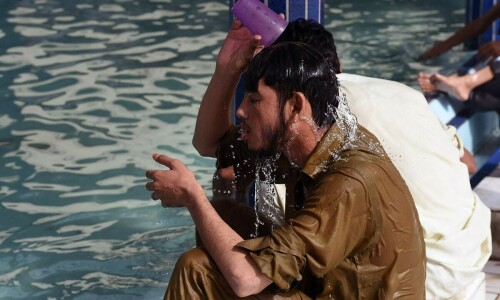AFTER a long wait, local government elections were finally held last month in Karachi and other locations in Sindh. The PPP, Jamaat-i-Islami and PTI emerged as the three largest parties. Other political parties and independents acquired a smaller number of seats in the electoral college that will elect the mayor and deputy mayor of Karachi. The MQM, which held the mayor’s office in the previous elected dispensation, boycotted the polls over reservations regarding delimitation.
Ordinary people seem to have pinned their hopes on the elected leadership. Many believe that, once in office, this leadership may deliver services, fix problems and carry out small- to medium-scale repair and maintenance work. It would be disappointing if the status quo in governance remains.
If nothing changes, the obsession of our governance managers, at the provincial and federal level, with high-visibility projects in the name of development will stay as it is.
For instance, problems in Karachi’s public transport sector have not been solved for decades. The Red Line bus rapid transit project is a case in point. Being implemented at a hefty cost of $503 million, with a $235m loan from the ADB, the project will serve a marginal number of commuters partially. Those promoting the entire BRT programme claim it will provide an end-to-end commuting option. The reality is otherwise. The operational Green Line BRT only serves passengers who commute from Surjani Town to the Numaish corridor. The passengers then take another mode of transport to reach their destination. Given the current financial meltdown, the rulers must refrain from donor-driven, high-cost, subsidy-dependent service delivery choices.
The status quo must change after LG polls.
We forget that the Karachi Transport Corporation had to be closed down in 1996 because of its loss-making operations. Its revenue was negligible compared to its operational costs. Commuters can actually be facilitated if private transport operators are given an enabling environment. Provision of appropriate terminal spaces, stable and transparent allocation of route permits, stable policies and protection from fleecing by traffic and other authorities will help.
Perhaps our next mayor and councillors may make a case for the choices of ordinary people before the provincial and federal cadres so that they can take the right decisions. Repair of roads, launching or improving commuter-friendly bus routes, revamping bus stops, proper security arrangements and upgrading transport options for women and children are common needs.
Along with solid waste management, municipal services have included sweeping the lanes. But now, the only task where KMC is allowed to play a role is the development of landfill sites for final waste disposal. The present facilities are inadequate. Both Jam Chakro and Govind Pass act as mere dumping sites where mixed garbage is quietly burned. The sites also face the danger of encroachment as many real estate developments are taking place.
The next mayor can transform the final disposal sites into lucrative waste-to-energy enterprises. After conducting feasibility and technical studies, more sites can be identified to develop energy-generation plants where city waste can be successfully transformed into precious energy resources. It can earn revenue for the municipality and reduce pollution. The Sindh Solid Waste Management Board must work closely with KMC and town municipal administrations to improve the daily lifting of garbage and clean streets and public spaces. The KMC council and mayor must use their position on the governing board of the Karachi Water and Sewerage Board to deal with citizens’ woes regarding urban water supply and sewerage services.
Presently, the reform process is underway under the aegis of the World Bank to revamp institutional arrangements for delivering water supply and sewerage services to Karachi consumers. A consultative process can be initiated so that the reform agenda can benefit from information on the challenges faced by a variety of residents. With summer and Ramazan round the corner, water supply problems are likely to exacerbate and reach the point of no return.
Residents are justified in their mistrust of elected representatives as even basic services such as the issuance of birth and death certificates, attestation of documents etc can be a complicated affair. Municipal councillors, union committee chairmen and others need to repair this lack of trust. Engaging with the public, maintaining cordial communication with local residents and implementing innovative solutions are expected. Given their elected status, the councillors can be a bridge between the constituencies and the authorities concerned. One hopes that power politics takes a backseat and that real service is rendered by this tier of urban governance.
The writer is an academic and researcher based in Karachi.
Published in Dawn, February 7th, 2023













































